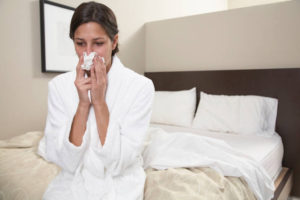 Alternative to Chemo – Update from John Hopkins Feb 2010
Alternative to Chemo – Update from John Hopkins Feb 2010
AFTER YEARS OF TELLING PEOPLE CHEMOTHERAPY IS THE ONLY WAY TO TRY (‘TRY’, BEING THE KEY WORD) TO ELIMINATE CANCER, JOHNS HOPKINS IS FINALLY STARTING TO TELL YOU THERE IS AN ALTERNATIVE WAY.
Maybe we do not need to consider the regimen of Chemo & Radiation as a means to fight cancer. There is an alternative to chemo, Here is the update from John Hopkins.
Alternative to Chemo & Radiation – Cancer Update from Johns Hopkins:
1. Every person has cancer cells in the body. These cancer cells do not show up in the standard tests until they have multiplied to a few billion. When doctors tell cancer patients that there are no more cancer cells in their bodies after treatment, it just means the tests are unable to detect the cancer cells because they have not reached the detectable size.
2. Cancer cells occur between 6 to more than 10 times in a person’s lifetime.
3 When the person’s immune system is strong the cancer cells will be destroyed and prevented from multiplying and forming tumors.
4. When a person has cancer it indicates the person has multiple nutritional deficiencies. These could be due to genetic, environmental, food and lifestyle factors.
Strengthen the Immune System
5. To overcome the multiple nutritional deficiencies, changing diet and including supplements will strengthen the immune system.
6. Chemotherapy involves poisoning the rapidly-growing cancer cells and also destroys rapidly growing healthy cells in the bone marrow, gastrointestinal tract etc, and can cause organ damage, like liver, kidneys, heart, lungs etc.
7. Radiation while destroying cancer cells also burns, scars and damages healthy cells, tissues and organs.
8. Initial treatment with chemotherapy and radiation will often reduce tumor size. However prolonged use of chemotherapy and radiation do not result in more tumor destruction.
9. When the body has too much toxic burden from chemotherapy and radiation the immune system is either compromised or destroyed, hence the person can succumb to various kinds of infections and complications.
10. Chemotherapy and radiation can cause cancer cells to mutate and become resistant and difficult to destroy. Surgery can also cause cancer cells to spread to other sites.
11. An effective way to battle cancer is to starve the cancer cells by not feeding it with the foods it needs to multiply.
Alternative to Chemo – CANCER CELLS FEED ON:
a. Sugar is a cancer-feeder. By cutting off sugar it cuts off one important food supply to the cancer cells. Sugar substitutes like NutraSweet, Equal, Spoonful, etc are made with Aspartame and it is harmful. A better natural substitute would be Manuka honey or molasses, but only in very small amounts. Table salt has a chemical added to make it white in color. Better alternative is Bragg’s aminos or sea salt.
b. Milk causes the body to produce mucus, especially in the gastrointestinal tract. Cancer feeds on mucus. By cutting off milk and substituting with unsweetened soy milk cancer cells are being starved.
c. Cancer cells thrive in an acid environment. A meat-based diet is acidic and it is best to eat fish, and a little chicken rather than beef or pork.
Meat also contains livestock antibiotics, growth hormones and parasites, which are all harmful, especially to people with cancer.
d. A diet made of 80% fresh vegetables and juice, whole grains, seeds, nuts and a little fruits help put the body into an alkaline environment.
About 20% can be from cooked food including beans. Fresh vegetable juices provide live enzymes that are easily absorbed and reach down to cellular levels within 15 minutes to nourish and enhance growth of healthy cells. To obtain live enzymes for building healthy cells try and drink fresh vegetable juice (most vegetables including bean sprouts) and eat some raw vegetables 2 or 3 times a day. Enzymes are destroyed at temperatures of 104 degrees F (40 degrees C).
Avoid Caffiene
e. Avoid coffee, tea, and chocolate, which have high caffeine. Green tea is a better alternative and has cancer fighting properties. Water-best to drink purified water, or filtered, to avoid known toxins and heavy metals in tap water. Distilled water is acidic, avoid it.
12. Meat protein is difficult to digest and requires a lot of digestive enzymes. Undigested meat remaining in the intestines becomes putrefied and leads to more toxic buildup.
13. Cancer cell walls have a tough protein covering. By refraining from or eating less meat it frees more enzymes to attack the protein walls of cancer cells and allows the body’s killer cells to destroy the cancer cells.
14. Some supplements build up the immune system (IP6, Flor-ssence, Essiac, anti-oxidants, vitamins, minerals, EFAs etc.) to enable the bodies own killer cells to destroy cancer cells. Other supplements like vitamin E are known to cause apoptosis, or programmed cell death, the body’s normal method of disposing of damaged, unwanted, or unneeded cells.
15. Cancer is a disease of the mind, body, and spirit. As a result a proactive and positive spirit will help the cancer warrior be a survivor. Anger, unforgiveness and bitterness put the body into a stressful and acidic environment. Above all learn to have a loving and forgiving spirit. Learn to relax and enjoy life.
16. Cancer cells cannot thrive in an oxygenated environment. Exercising daily, and deep breathing help to get more oxygen down to the cellular level. Oxygen therapy is another means employed to destroy cancer cells.
Alternative to Chemo – Rules – Also these rules will no doubt help as well
1. No plastic containers in micro.
2. No water bottles in freezer.
3. No plastic wrap in microwave.
Johns Hopkins has recently sent this out in its newsletters. Furthermore this information is being circulated at Walter Reed Army Medical Center as well. Dioxin chemicals cause cancer, especially breast cancer. Dioxins are highly poisonous to the cells of our bodies. Also do not freeze your plastic bottles with water in them as this releases dioxins from the plastic.
Recently, Dr. Edward Fujimoto, Wellness Program Manager at Cast le Hospital, was on a TV program to explain this health hazard. He talked about dioxins and how bad they are for us. He said that we should not be heating our food in the microwave using plastic containers. This especially applies to foods that contain fat. As a result he said that the combination of fat, high heat, and plastics releases dioxin into the food and ultimately into the cells of the body.
Use Glass instead
Instead, he recommends using glass, such as Corning Ware, Pyrex or ceramic containers for heating food You get the same results, only without the dioxin. So such things as TV dinners, instant ramen and soups, etc., should be removed from the container and heated in something else. Paper isn’t bad but you don’t know what is in the paper. It’s just safer to use tempered glass, Corning Ware, etc. He reminded us that a while ago some of the fast food restaurants moved away from the foam containers to paper. The dioxin problem is one of the reasons.
Also, he pointed out that plastic wrap, such as Saran, is just as dangerous when placed over foods to be cooked in the microwave. Hence as the food is nuked, the high heat causes poisonous toxins to actually melt out of the plastic wrap and drip into the food.
Cover food with a paper towel instead. This is an article that should be sent to anyone important in your life. Alternative to Chemo is an important issue.
Save
 The happiest retirees have learned this lesson. It is all about finding the right balance in life. It is also about doing things that are interesting and challenging to you and that you enjoy. Too much of any one particular activity and it becomes boring. Doing something different every day helps us all enjoy life more and look forward to the activities we are following in the days ahead. Actually, this approach applies to all of us whether we are retired, in the middle of our careers, or just beginning. Lead a well-balanced life to maintain a satisfying career and lifestyle. The following are the main categories that all of us should pay attention to.
The happiest retirees have learned this lesson. It is all about finding the right balance in life. It is also about doing things that are interesting and challenging to you and that you enjoy. Too much of any one particular activity and it becomes boring. Doing something different every day helps us all enjoy life more and look forward to the activities we are following in the days ahead. Actually, this approach applies to all of us whether we are retired, in the middle of our careers, or just beginning. Lead a well-balanced life to maintain a satisfying career and lifestyle. The following are the main categories that all of us should pay attention to.



 Canadians, based on a report from their statistics arm of the government were expected to have a life expectancy of 79 years for men and 83 years for women. This data came from a report developed in 2007 to 2009. They are further forecasting that by 2031, the average man will live to 82 and women will live to 86. Not only is the gap narrowing a bit, both sexes are living longer as our health generally improves. Their health care gets better as well. Does this mean we are just kept alive longer. Do we also get to enjoy those extra years as well? The ability to live long and healthy depends on many issues.
Canadians, based on a report from their statistics arm of the government were expected to have a life expectancy of 79 years for men and 83 years for women. This data came from a report developed in 2007 to 2009. They are further forecasting that by 2031, the average man will live to 82 and women will live to 86. Not only is the gap narrowing a bit, both sexes are living longer as our health generally improves. Their health care gets better as well. Does this mean we are just kept alive longer. Do we also get to enjoy those extra years as well? The ability to live long and healthy depends on many issues. In the U.S., and around the world people are living longer than ever before. There are now about 80,000 centenarians in the US alone, which makes it one of the fastest-growing segments of the population. This means about 1 in 6,000 people are will live to be 100 years old. Live to be 100 years old is actually not such a difficult thing anymore. More people are doing it. We just came back from a party for a centenarian. She looked great and needed a wheelchair, but she made it.
In the U.S., and around the world people are living longer than ever before. There are now about 80,000 centenarians in the US alone, which makes it one of the fastest-growing segments of the population. This means about 1 in 6,000 people are will live to be 100 years old. Live to be 100 years old is actually not such a difficult thing anymore. More people are doing it. We just came back from a party for a centenarian. She looked great and needed a wheelchair, but she made it. Did you know that your risk of death rises steadily with every overweight pound you gain? This was confirmed on a huge study funded by the National Institutes of Health . There are lots of reasons for death rates or probability for death rates to increase. We have all heard about smokers and that they tend to die about 5 years earlier on average than every one else who does not smoke. Being over weight can have the same effect or perhaps even more so. This is a serious result, yet people do not listen! Excess Weight Increases Risk of Death and over 50% of our population is overweight.
Did you know that your risk of death rises steadily with every overweight pound you gain? This was confirmed on a huge study funded by the National Institutes of Health . There are lots of reasons for death rates or probability for death rates to increase. We have all heard about smokers and that they tend to die about 5 years earlier on average than every one else who does not smoke. Being over weight can have the same effect or perhaps even more so. This is a serious result, yet people do not listen! Excess Weight Increases Risk of Death and over 50% of our population is overweight. Many people suffer from High Blood Pressure and take medication to control their pressure. Yet they still have episodes where their blood pressure goes through the roof. The question is occasional high pressure risky. You may not even realize that you have high blood pressure. So have your blood pressure checked on a regular basis.
Many people suffer from High Blood Pressure and take medication to control their pressure. Yet they still have episodes where their blood pressure goes through the roof. The question is occasional high pressure risky. You may not even realize that you have high blood pressure. So have your blood pressure checked on a regular basis. Can belly fat cause strokes? The answer is yes, a higher number of people with belly fat or the rubber tire around the waist will experience a stroke prematurely. This situation affects both women and men, which is a surprising data point, since previously it was thought that women did not succumb to strokes at the same level as men do. That tell-tale sign of a large belly is a quite reminder that you have increased the odds that you could have a stroke in the near future.
Can belly fat cause strokes? The answer is yes, a higher number of people with belly fat or the rubber tire around the waist will experience a stroke prematurely. This situation affects both women and men, which is a surprising data point, since previously it was thought that women did not succumb to strokes at the same level as men do. That tell-tale sign of a large belly is a quite reminder that you have increased the odds that you could have a stroke in the near future.
 This post is about smoke filled casinos, the amount of smoke, second hand smoke and chemicals from deodorizer being sprayed in US casinos. It may seem like a funny post to a diet information blog, however I am really on a roll here against situations that cause a lot of hardship and expense to otherwise healthy people. Most people do moot even give it a seconds thought, but if these chemicals bother you, then you really are much more aware.
This post is about smoke filled casinos, the amount of smoke, second hand smoke and chemicals from deodorizer being sprayed in US casinos. It may seem like a funny post to a diet information blog, however I am really on a roll here against situations that cause a lot of hardship and expense to otherwise healthy people. Most people do moot even give it a seconds thought, but if these chemicals bother you, then you really are much more aware. This post is not really about diets, instead it is about a pet peeve of mine. I happened to be allergic to a lot of things. I also suffer from chronic bronchitis. So I am very aware of various environmental and non-environmental agents in the air that might affect my breathing ability. This particular post is about Deodorizor Spraying in Hotel Rooms after they have been cleaned. This is to add air freshener to the air and supposedly make them smell nice.
This post is not really about diets, instead it is about a pet peeve of mine. I happened to be allergic to a lot of things. I also suffer from chronic bronchitis. So I am very aware of various environmental and non-environmental agents in the air that might affect my breathing ability. This particular post is about Deodorizor Spraying in Hotel Rooms after they have been cleaned. This is to add air freshener to the air and supposedly make them smell nice. Study Shows Adults Who Nap Learn Better, Perform Better – Have you ever taken a nap on the weekend after lunch, about mid afternoon? How did you feel afterwards? Midday Naps Make Us Smarter. Would rejuvenated be the right word? Studies are now being conducted that prove what many of us have known for years. We have not been able to practice because of time constraints and pressure at work as well as in our everyday life. It is not usually until we retire, that we have the time to really try out the mid day nap routine. We find out just how great it can be, not only for our well being, but also our intelligence as well.
Study Shows Adults Who Nap Learn Better, Perform Better – Have you ever taken a nap on the weekend after lunch, about mid afternoon? How did you feel afterwards? Midday Naps Make Us Smarter. Would rejuvenated be the right word? Studies are now being conducted that prove what many of us have known for years. We have not been able to practice because of time constraints and pressure at work as well as in our everyday life. It is not usually until we retire, that we have the time to really try out the mid day nap routine. We find out just how great it can be, not only for our well being, but also our intelligence as well. Alternative to Chemo – Update from John Hopkins Feb 2010
Alternative to Chemo – Update from John Hopkins Feb 2010